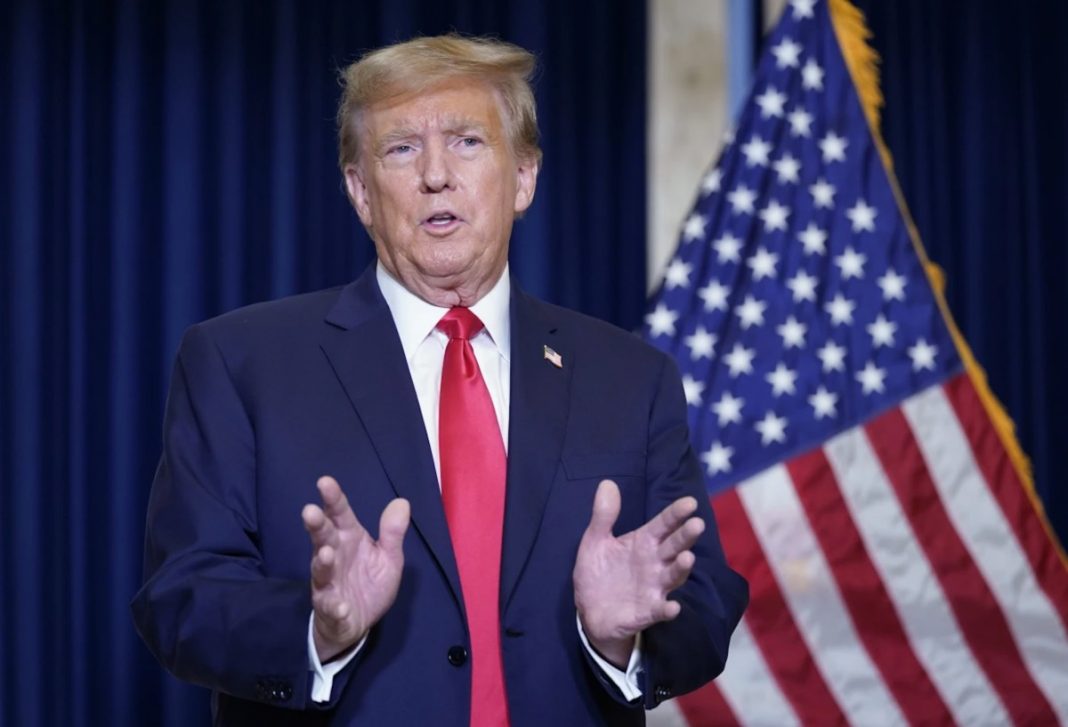WASHINGTON, USA – In a landmark decision, the U.S. Circuit Court of Appeals for the District of Columbia on Tuesday, February 6, 2024, struck down former US President Donald Trump‘s assertion of broad immunity from prosecution for actions taken during his tenure, particularly those related to attempts to overturn the 2020 election results and the subsequent January 6 attack on the Capitol.
This ruling challenges the traditional boundaries of presidential immunity and sets the stage for a potential Supreme Court showdown.
Trump, who remains a dominant figure in the Republican Party and a leading contender for its presidential nomination, signaled his intention to escalate the matter to the Supreme Court, seeking to forestall the trial.
He has until February 12 to make his appeal before the appeals court’s decision takes effect, potentially moving the trial forward as initially scheduled.
Reacting to the ruling on Truth Social, Trump condemned it as “So bad, and so dangerous,” arguing that such a “Nation-destroying ruling” should not be allowed to stand.
His campaign spokesman, Steven Cheung, echoed this sentiment, stating that Trump “respectfully disagrees with the DC Circuit’s decision” and intends to appeal “in order to safeguard the Presidency and the Constitution.”
The appeals court, in its 57-page decision, unequivocally stated that there is no legal foundation for Trump to claim blanket immunity for any actions undertaken as president.
The court highlighted that Trump, now a private citizen, could not be shielded by executive immunity in this criminal case, marking a significant departure from the notion of unconditional presidential protection.
Addressing Trump’s concerns about the potential for criminal liability to chill presidential actions, the court found such risks to be minimal.
Contrary to inhibiting lawful executive discretion, the possibility of facing federal criminal charges could deter abuses of power and criminal conduct, thereby serving as a structural benefit to the presidency and the nation.
The court emphasized the paradox in Trump’s argument, noting the constitutional mandate for the president to ensure laws are faithfully executed, and the incongruity of a president defying those laws without consequence.
This ruling is part of a broader legal battle involving Trump, who faces four criminal prosecutions amidst his political campaign.
The significance of the trial’s timing, possibly before the election, raises questions about its impact on Trump’s political fate and the potential for a presidential self-pardon should he return to office.
The appeals court decisively sided with Special Counsel Jack Smith’s argument that no overarching immunity exempts former presidents from prosecution for criminal acts committed while in office, including efforts to undermine the democratic process.
Former Trump attorney Ty Cobb, a critic of the former president’s election fraud claims, lauded the ruling as “one of the most profound constitutional opinions in our history,” predicting its significance in legal education and discourse for the next century.
As Trump prepares to take his case to the Supreme Court, the nation watches closely, anticipating a ruling that could redefine the scope of presidential immunity and accountability.







